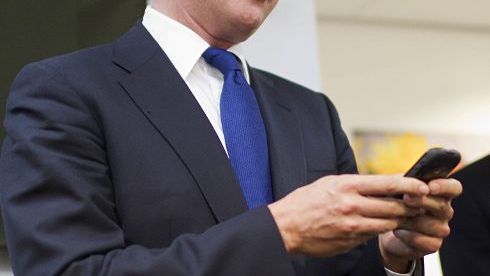

Is it ever a good idea to post political statements on social media?
- Words: Freddie Church
With more and more people getting the majority of their information through social media platforms, blogs and YouTube it might be worth asking whether this is actually a good idea. Democracy is undoubtedly positive concept, however are we asking the population to make important national and international decisions via plebiscite, without the right degree of inform?
Our political discourse is perpetually shrinking to fit our smartphone screens. This all began back in 2008 with President Barack Obama, who leveraged social media channels to great effect – appealing to a public who’d previously disconnected from politics. However, the power of social media in this sphere has only since increased. The freedom that social media allows, does give a vocal minority a platform on which to begin or contribute to existing debates. This is a positive thing within a democracy however, the expression of views can equally have a negative impact on others.
Politics will always be a divisive issue, one that is often avoided by many due to the sensitive nature of the subject. Within a small group of close friends, there is the possibility of having debates about political issues. However, on social media where the interactions between people are less personal and often have a wider reach, there is more chance of offending someone.
(Photo: Jens Buettner/DPA/Corbis)
A study carried out by the Pew Research Centre, a non-partisan think tank, in 2012 can illustrate the effect posting political views on social media sites can have. The most politically active individuals on social often sit at opposite ends of the political spectrum. 38% of people on social media platforms have discovered through a friend’s posts that their political beliefs were different than the user thought they were. This can lead to people assessing relationships with friends based on the political material they post on different social media platforms.
18% of social networking site users have blocked, unfriended, or hidden someone due to the political content they post on their feeds. 10% of people unfriended or hid people simply because they post about political issues to frequently. 9% unfriended someone because they posted something they disagreed with or because they found it offensive. A further 5% according to the study, have unfriended people simply because they posted something they were worried other friends would find offensive. The three things we are always told never to discuss in public are money, politics and religion. There’s good reason for this, they are hot button topics. However, due to the personal disengagement afforded to people by the internet and social media, people discuss these issues without the care or attention they usually would, which in turn causes more harm than good.
Politicians are also beginning to realise what a powerful tool social media can be, consequently they are changing the way they interact with the public. Well established politicians such as David Cameron, are careful how they use social media, using it often to showcase images of visits they have made, or to post long often unengaging speeches onto their social media feeds in the hope of informing their followers. However, social media affords politicians an opportunity to gain momentum, this is more frequently achieved not through the traditional political rhetoric, but on a more emotional basis.
(Photo: Documentary Screenshot)
The best example of this is Donald Trump. What Trump in particular seems to understand better than anyone else online, it is not about the information you present, but more about provoking a reaction along affective lines. Similar tactics have recently been incorporated across the pond. With characters such as Boris Johnson commanding swathes of eyeballs in the digital world – 161,000 followers on Twitter –, the former London Mayor has the capacity to whip the population into a frenzy, broadcasting messages in 140 characters or less: such as this on the day of voting on the EU referendum:
“Morning folks. Polls are open until 10pm. Now is the time to believe in this country and #VoteLeave. Let’s make today our Independence Day.”
This is a good example of how Johnson is using emotive rhetoric above and beyond the political to appeal to voters. His very deliberate reference to an ‘Independence Day’ is undeniably a page taken from the book of his American counterparts. Social media is allowing politicians to use buzzword driven campaigns to appeal to an ever expanding, electronically engaged electorate on an impersonal level. Giving even more weight to the idea that within modern society you are only ever as relevant as your last tweet and as important as your follower count.
(Photo: PA)
This shows the power popular internet platforms are beginning to exert on world politics. However, is this a good thing? Will democracy turn into an instantaneous beast with push-button voting on important issues that will be decided on who has the most followers? Will this lead to a higher level of political engagement simply due to the ease of voting? Or will it lead to more disengagement because the electorate are constantly bombarded with these slogans and they will get bored. This might lead to the masses voting through laws that will be detrimental to the health of the country, and depending how these work, could lead to further divisions and isolationist ideals being espoused, making diplomacy incredibly difficult.
Theoretically, social media platforms should be a good thing for politics, allowing for people to connect and debate different ideas in open and honest discussions. In reality however, social is the operative word. The expression of political views on social media has, as the Pew Research Centre data has shown, caused us to loose friends and therefore we are, by definition, more antisocial due to the presence of politics on social media.
(Main & featured photo: David Hartley/Rex Features)


